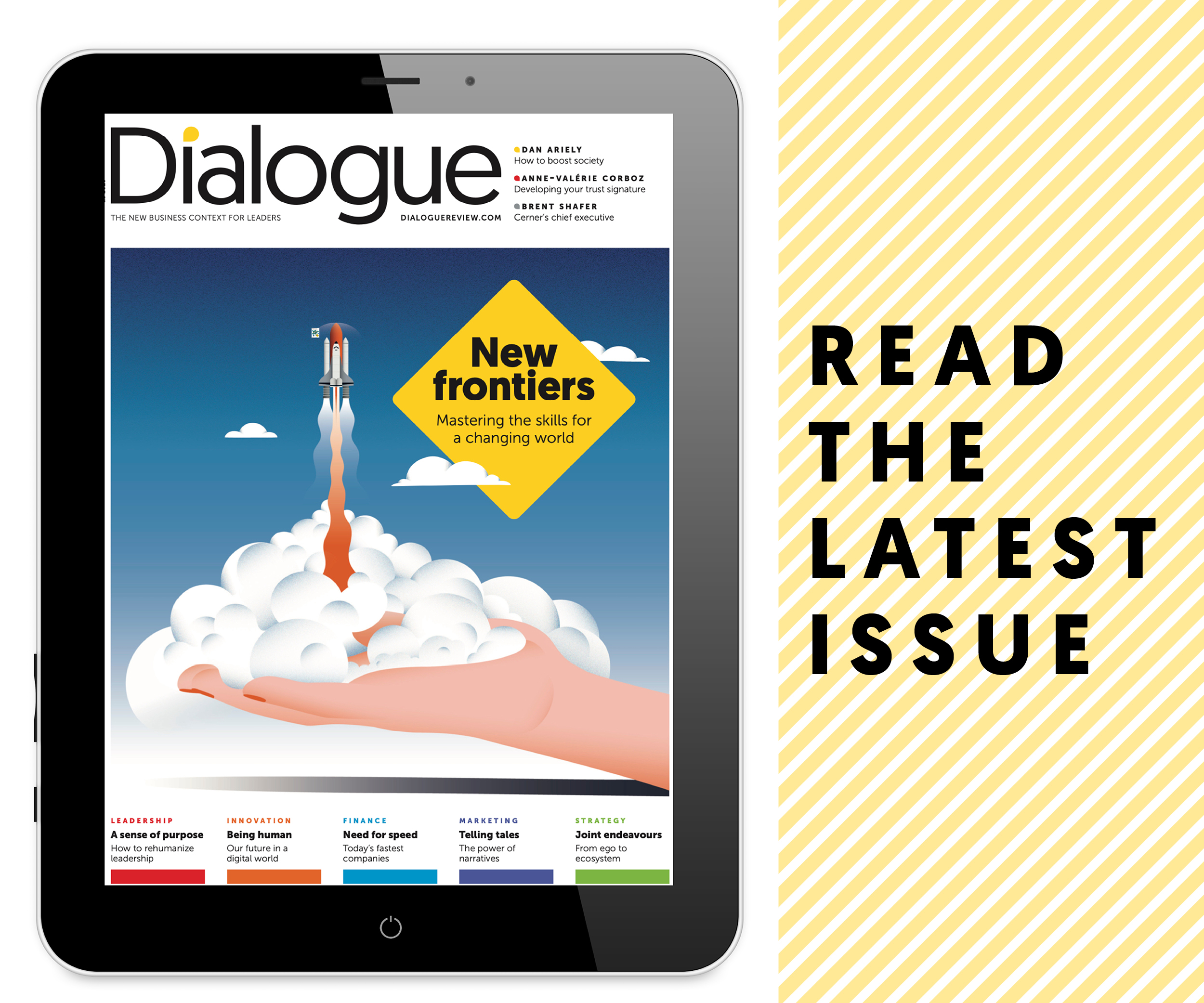Here’s what to expect, from the desk of editor Patrick Woodman
As this issue of Dialogue goes to press, much of the world is in a state of lockdown unknown – indeed, unimaginable – at any point in most of our lifetimes. The impacts of Covid-19 will be far-reaching and hard to predict. Its lethal effect on human life, and the misery it is wreaking on families around the globe, is tragically clear. Among its wider social and economic effects, some will be mild; others, utterly devastating. Some will turn out to be short-term, while others will shape our world for years to come. For one thing, the economic shock has made a mockery of budgets and business plans. Leaders in all sectors are rapidly rewriting strategies, improvising solutions to unexpected problems, and adapting to new ways of working. It is in that context that this issue looks at some of the new skills that may help leaders thrive in the uncertain times ahead. The number of fires that need fighting may be soaring, but we cannot take our eyes off the slower-burning priority of skills development. The ‘pre-existing conditions’ facing leaders – climate change and sustainability, digitization and automation, business’ role in society – have not gone away. Some challenges will be exacerbated by Coronavirus; some changes will be accelerated. The pandemic might just point us towards new solutions.
With that in mind, our lead story from Professor Dan Ariely is unmissable. He explores how leaders can create behavioural change. There’s no doubt that now is the time to think about how we can put “rocket boosters” on our organizations, and on society, as his feature puts it. Equally essential is Thomas Wedell-Wedellsborg’s article on the skill of reframing. When we are beset by problems, what could be more vital than making sure we’re spending our time and energy on solving the right ones? Deborah Grayson Riegel explains how conflict management skills can be repurposed for self-care in turbulent times; while Jacob Morgan takes a longer-term view, sharing his insights on the nine skills and mindsets that leaders will need for success. Sharmla Chetty and Hans Kuipers, meanwhile, show how to make the most of remote working – one of the defining features of the new world. Alongside that, be sure to turn to Angela Lane and Sergey Gorbatov’s feature on leaders’ responsibilities for developing knowledge workers. As they note, knowledge work is frequently invisible to managers: Covid-19 has made it more likely that theworkers are unseen, too. Elsewhere, Sudhanshu Palsule and Michael Chavez return to Dialogue with a guide to developing purpose. Their argument for the importance of empathy and purpose was written before the pandemic but rings truer than ever, as Ben Walker finds in his review of their new book. Futurists Rohit Talwar, Steve Wells and Alexandra Whittington consider the elements needed to create a human future in the face of technological disruption, while Piers Cain weighs up Daniel Susskind’s recent book on a world without work. It is a notion that, post-pandemic, suddenly feels much less unimaginable.
Avoiding the gloomier forecasts for our collective future will demand resilience, courage, creativity and no small amount of skill from leaders.

